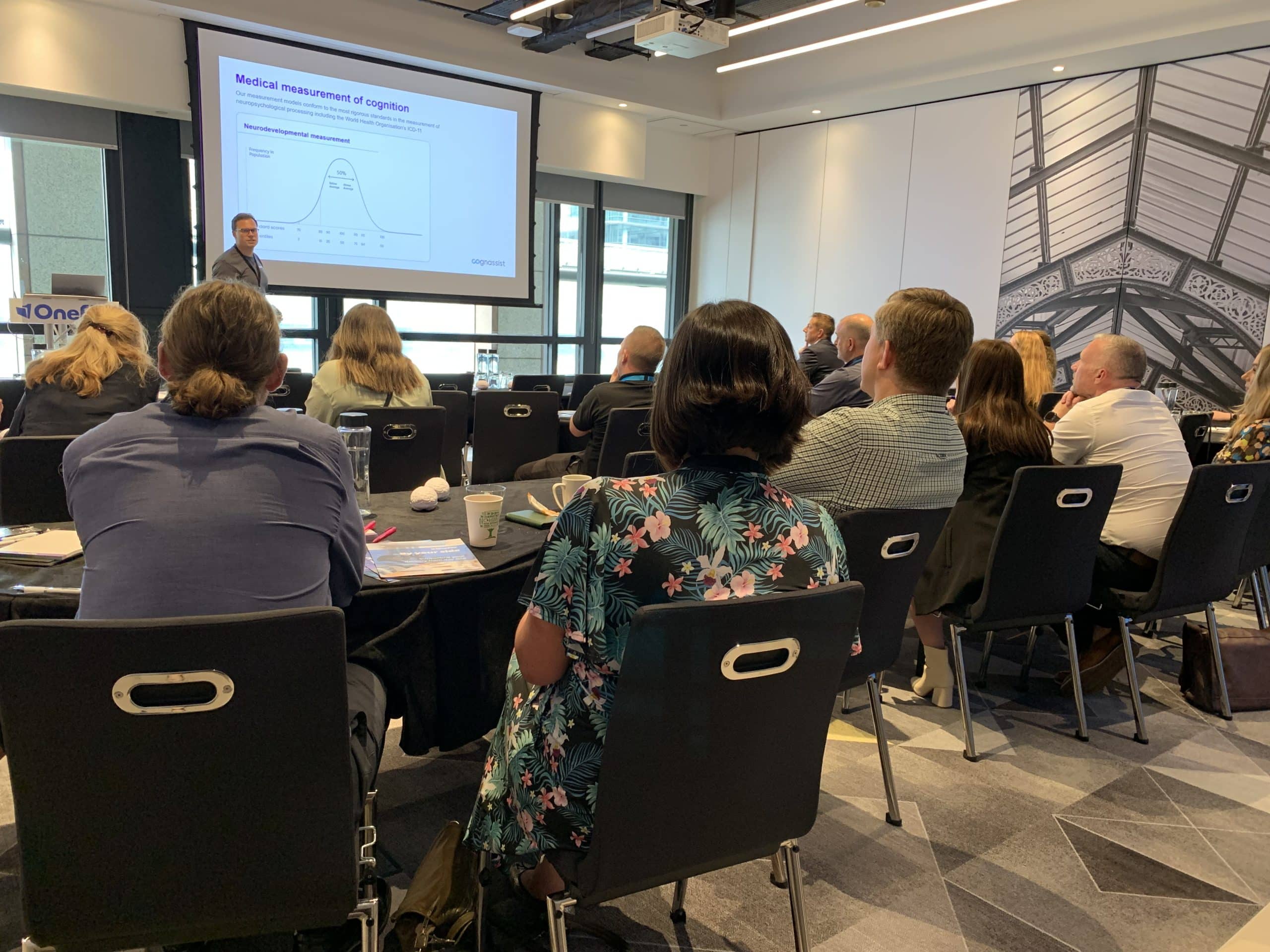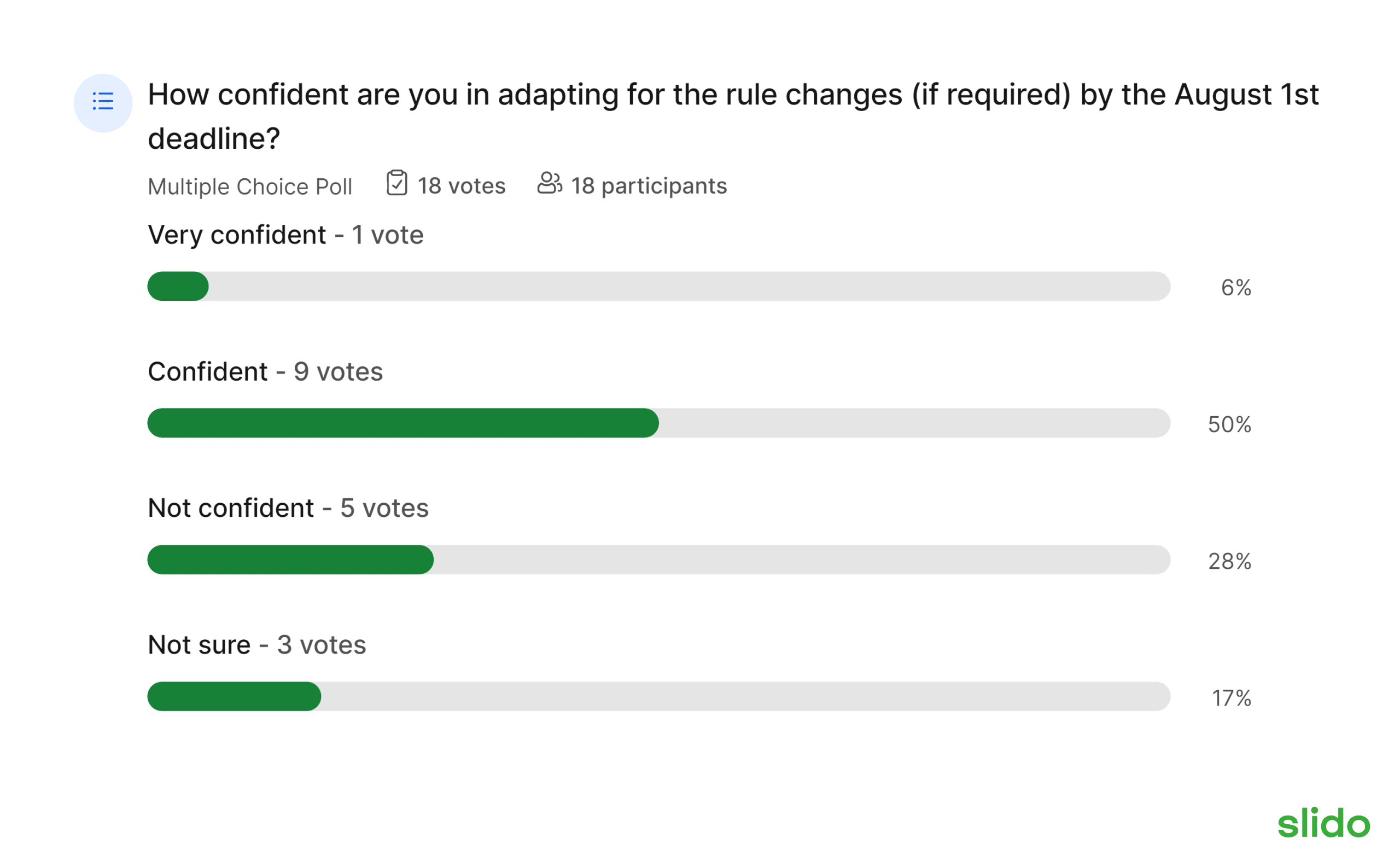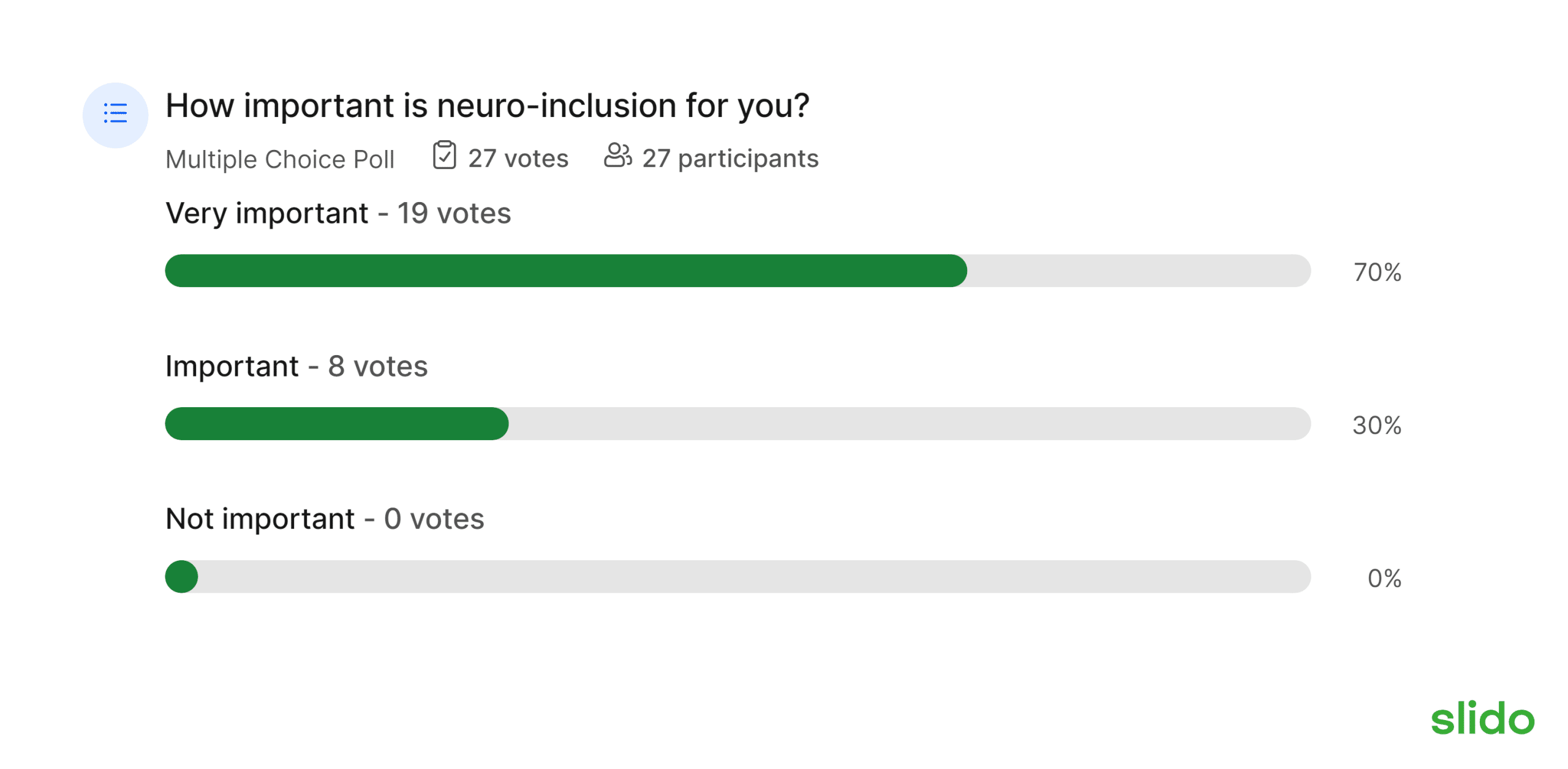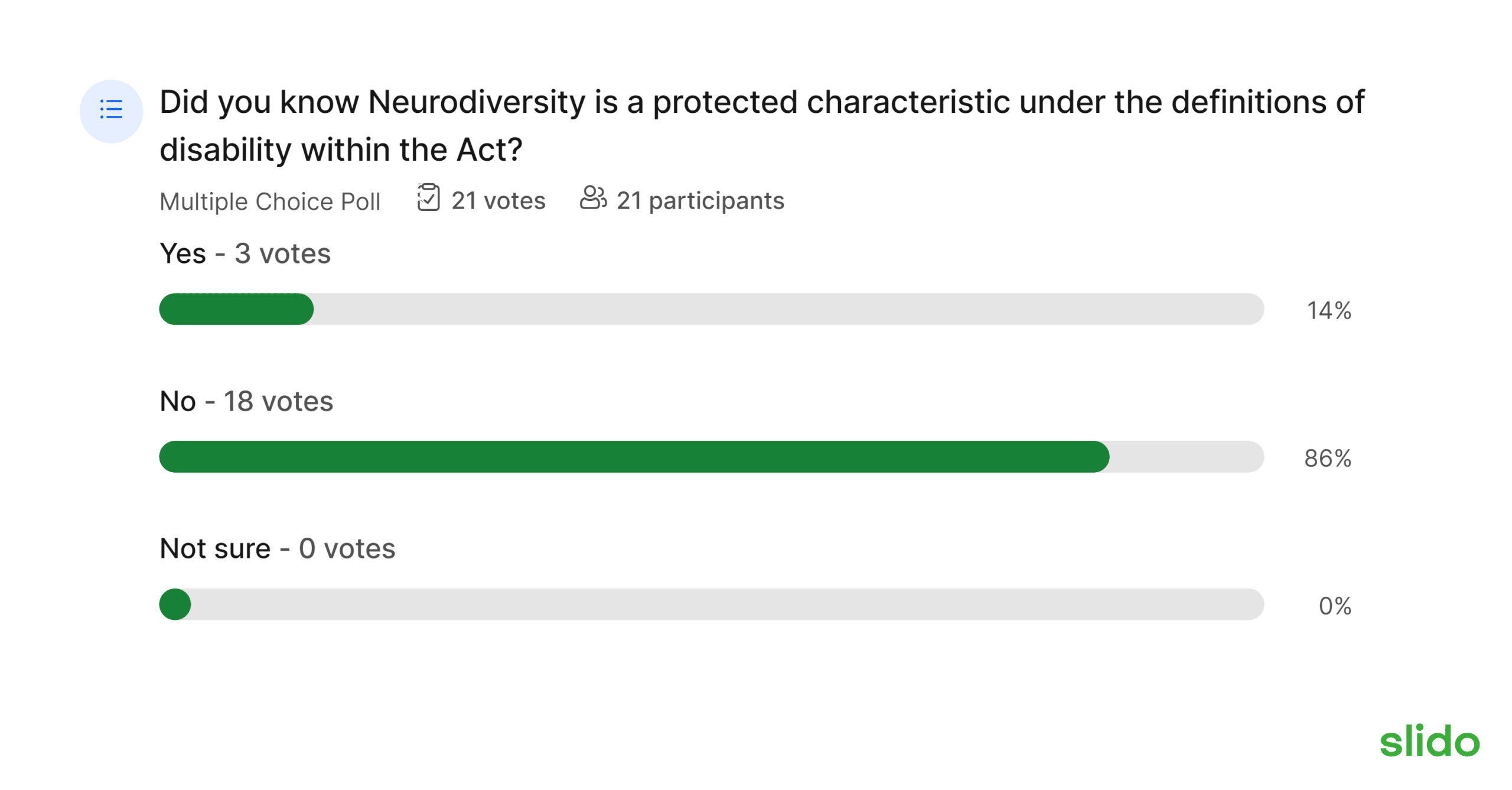The future of learning engagement: Key insights from OneFile and Cognassist
It’s always worth getting together and sharing ideas across education and the Learning and Development (L&D) sectors.
The OneFile Future of Engagement Conference was one such worthwhile endeavour, with a range of leaders attending the OneFile Industry Conference.
The aim of this conference was to discuss “The Key to Unlocking Effective and Enjoyable Learning.”
And Cognassist knows a thing or two about effective learning and engagement.
Our background in cognitive science, personalised learning and improving outcomes for learners with different needs has helped thousands of individuals to achieve across the UK and beyond.
In this blog, we’ll explore some industry insights and hear from leaders across the sector. Plus, we’ll showcase how Cognassist works with OneFile to ensure users can enjoy the benefit of both services through easy access and integration.
Cognassist was a headline sponsor of the event, with a busy exhibition booth, and an interactive workshop by our CEO on “Quality Outcomes Through Learner Neuro-Inclusion.”


How do quality and neuro-inclusion intersect?
Equality is quality.
The key to effective learning is to understand how each of us learns and empower the best possible outcome for everyone.
In other words, creating more equity within learning and education, which can be hard when everything has to be standardised and measurable.
Many educators and training providers still struggle to know what best practice looks like and create a robust standardised approach to learning support and flexible learning plans.
We all think and learn differently, and without an adaptive approach, this complexity becomes overwhelming.
Providers need support as much as individual learners.
Because using a ‘one size fits all’ approach to learning in both education and the workplace puts too many people at an unfair disadvantage.
Cognassist has previously spoken about these issues with a panel of experts over three webinars in our Quality Series.
With OneFile, it was our CEO, Chris Quickfall, leading the conversation.
He talked about some of our data and what an evidence-based, supportive learning journey can look like. Alongside insights from our clients on how they have achieved outstanding outcomes for both learners and their organisation.
Initial assessment changes
Chris talked through the upcoming changes to Learning Support Funding for learners with learning difficulties and disabilities.
The new rules make it mandatory to conduct a screening exercise to identify learners who require learning support during initial assessment.
The Apprenticeship Funding Rules from the Department for Education don’t act only as a compliance measure but can be seen as a measure of quality for learning support processes.
The funding rules outline what evidence must be gathered at the start of learning, and ongoing evidence during the learning programme. This provides a full picture of the support journey for a learner.
This process doesn’t just provide clarity for external auditors, but also internal staff to guide best practice and ensure every learner receives equal access and opportunities from the start of learning.
Essentially, it is a framework for best practice support.
Everything leads from initial assessment.
It is a learner’s starting point that either sets a learner back or sets them up for success.
The funding you can claim is an outcome of your team’s hard work to create equitable education and rightly provides government backing for those providers who are confident that they deliver a supportive learning experience.
Our CEO shared some words from Louise Wilkinson at Skern Training and Skills, who recently went through a funding audit with the ESFA:
“We had a positive audit for Cognassist with no effect on our funding […] It is down to the evidence, you must show evidence of that supportive journey, from IAG when they do their initial assessment, right the way through to reasonable adjustments at EPA.”
We also asked people to complete an interactive survey during the session, and the first question looked at confidence.


Planning and delivery of learning support
Again, using the funding rules as a framework, Chris went into the further steps of a robust support process.
Recent changes also show that the employer and learner need to be involved, giving their consent.
However, the employer and learning provider must agree that, with the support and reasonable adjustments in place, they believe the learner has a reasonable chance of completion.
This change reflects the equitable nature of learner support. Some learners will require more support, others will require fewer adjustments. The important consideration is that they have the same chance of completion as their peers.
Educationwise, a Cognassist and OneFile client, mentioned on the day that they had received Outstanding at their first full Ofsted visit after partnering with Cognassist to deliver a 12-month Ofsted turn-around. We shared what Nick Preston, Head of Quality and Education, had said about the process of working with Cognassist:
“The real difference has been having Cognassist embedded at the very start. Learners that have really engrossed themselves into it from the beginning have seen the power of it and it’s been able to support them, not only in their work but around their life and dealing with different areas.”
Embedding learning support has a direct impact on neuro-inclusion.
And we asked just how important this aspect of equality, diversity and inclusion was to providers.


If neuro-inclusion is equally as important to your organisation, then learner support needs to be a priority, given due care on planning and delivery.
Reviewing support and recognising gaps
Measuring engagement and progress are vital to tracking the learning process.
Monthly reviews must be undertaken to ensure the support and reasonable adjustments a learner receives are still necessary and appropriate.
As Chris covered in his presentation, these reviews should refer back to the support plan and initial assessment of learning needs to ensure a joined-up approach.
The words of Bradford College’s Vice Principal for Curriculum, Asa Gordan, helped to illustrate the impactful outcomes that can be achieved:
“Overall, our success rates for apprenticeships have improved and there is higher retention and progression. Using Cognassist, we can quickly see engagement reports, measure learner progress and provide a whole package of support for the learner.”
Robust support delivers more positive outcomes. These positive outcomes impact some of the most disadvantaged learners.
Providers have a legal duty under the Equality Act 2010 to provide reasonable adjustments for disabled people.
The neurodifferences that fall under the umbrella term of neurodiversity, such as ADHD, autism and dyslexia are considered protected characteristics under UK law.
However, our survey results showed that these duties may not be clear to many providers.


Are you aware of your responsibilities or the potential gaps in your provision?
The future of learning engagement
When thinking about learning engagement, Cognassist and OneFile are working together to ensure learner’s get the best experience and providers have all the information they need in one place.
The integration provides the two-way functionality between Cognassist’s neuro-inclusion platform and OneFile’s Eportfolio:
- Ability to create a learner in Cognassist from Eportfolio
- Send a learner an invitation email to complete their assessment
- Track the status of a learner’s assessment progress
- Display the results of a Cognassist assessment within a learner’s portfolio
- Include the assessment results within the ILP
Our integration offers an innovative route to becoming Outstanding with an inclusive learning experience.
Whether you’re curious about using Cognassist in collaboration with OneFile or just getting to know our platform, talk to our team below to get all the details you need to start thinking about the future of learning engagement.
The future is neuro-inclusive
Get in touch to see how we can improve outcomes for your learners.